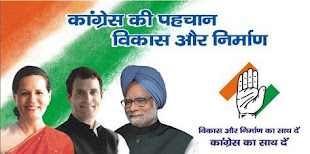Dr. Sheetal Kapoor
24th December is an important day in the history of consumer movement in India as on this day the Consumer Protection Act, 1986 came into existence. Consumer Protection Act is considered as the Magna Carta for protecting consumer rights through establishment of advisory and adjudication authorities. This year the theme proposed by the Ministry of Consumer Affairs is “Consumers! Discharge your Responsibilities: Assert your Rights” which clearly means ‘there cannot be rights without responsibilities’.
Consumer Rights under Consumer Protection Act
Section 6 of the Consumer Protection Act clearly mentions the six rights available to the consumers. These are -
· Right to Safety: To be protected against the sale of goods and services, which are spurious/ hazardous to life and property.
· Right to information: To know the quality, quantity, weight and the price of goods/services being paid for, so that one is not cheated by unfair trade practices.
· Right to Choose: To be assured, wherever possible, access to a variety of goods and services at competitive prices.
· Right to be heard: To be heard and to be assured that the interest would receive due consideration at appropriate fora.
· Right to Seek Redressal: To seek legal redressal against unfair or restrictive trade practices or unscrupulous exploitation of consumers.
· Right to Consumer Education: To have access to consumer education.
Gandhiji in the light of the above rightly said “A customer is the most important visitor on our premises. He is not dependent on us. We are dependent on him. He is not an interruption in our work - he is the purpose of it. We are not doing him a favour by serving him. He is doing us a favour by giving us the opportunity to serve him.”
Having examined the consumer rights and the purpose served by them, it is necessary to consider whether consumers should also be responsible enough to be entitled to exercise their rights. For instance, to be able to exercise their right to be heard, consumers should avail of the opportunities to know and be informed about consumer problems. To exercise their right to seek redressal of complaints, consumers must take all precautions to choose the right goods at the right price and learn how to use the products to prevent injury or loss. Some of the consumer problems can be avoided if we act responsibly.
Before Buying
As a responsible consumer we should plan our purchases in advance so that we get the right value for our money. We should try to enquire about the past performance of a product/service and also try to find out the reputation of the producer/ seller/service provider. Thus, self-help is the biggest tool in the hands of the consumers and they should make an informed choice. In this regard we can make use of comparative testing reports as published by voluntary consumer organizations such as, Voice and CERC for getting reliable and unbiased information about various brands which have been tested at various government approved laboratories.
While Buying
Consumers should collect information from various dealers regarding price and quality before purchasing products such as, cars, refrigerators, computers, etc. The proof of purchase and documents relating to purchase of durable goods should be obtained and preserved. It is important to get a cash memo with serial number, address and phone number to register a complaint, in a consumer courts, regarding defective product or deficiency in service. Similarly, durable consumer goods like TV, refrigerator, etc. carry warranty /guarantee cards issued by the dealers. The cards entitle the consumers to get the service for repairs and replacement of parts free of cost for a certain period after the purchase. Consumers should never sign a contract without first reading it. They should never sign a blank contract that a salesperson says will be completed later. If there is anything they do not understand, they can insist that it should be explained to them.
After Purchase
It is the responsibility of the consumer to use the product as per instructions given in the user manual. Further receipts, guarantee cards, terms of contract (photocopies), should be kept safely. In case of fault the dealer or the service center should be informed. Consumers should not meddle with the products themselves and should keep records for all correspondences and file them. Some consumers, especially during the guarantee period, make rough use of the product, thinking that it will be replaced during the guarantee period. This is not fair on their part. They should always use the products properly.
Besides the above responsibilities, consumers should be conscious of some other responsibilities. They should stick to the agreement made with manufacturers, traders and service providers. They should make timely payment in case of credit purchases. They should remember that they can exercise their rights only when they are willing to fulfill their responsibilities. As a dutiful consumer we should reduce waste, reuse and recycle products and think in terms of sustainable consumption. Thus, on the National Consumer Day we should be proud that we have rights but also should discharge our responsibilities.
रूहानी सफ़र का सबक़
-
हमने अपने रूहानी सफ़र में यही जाना है कि अल्लाह को सिर्फ़ वही शख़्स पा सकता
है, जिसका दिल साफ़ हो यानी जिसके दिल में किसी के लिए भी मैल न हो, यहां तक कि
अपन...



























0 Comments